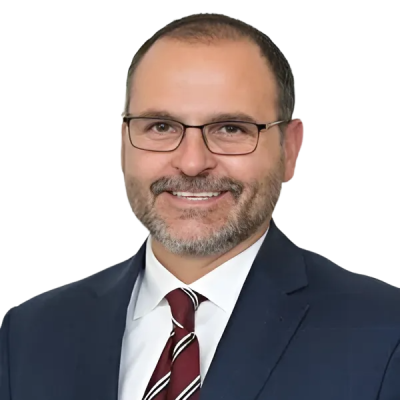Many employees do not file legitimate workers’ compensation claims due to the fear that their employer will fire them as retaliation. If you were fired after filing a workers’ compensation claim in California, consider visiting with the experienced workers’ compensation attorneys at Diefer Law Group at (888) 301-7795 to learn all of your legal options.
Wrongful Termination and Workers’ Compensation Claims
It is illegal for an employer in the state of California to fire an employee for filing a workers’ compensation claim. However, many employers in the state of California will attempt to find other grounds to fire an employee, making this a complicated and challenging legal issue. If a worker can prove that they were fired as a result of filing a workers’ compensation claim, according to California Labor Code § 132a (2022), the employer may be forced to pay the employee a significant penalty.
Some of the penalties to the employer can include an increase in workers’ comp benefits by 50%, up to a maximum of $10,000. In addition, the wrongfully terminated employee may receive reimbursement for the wages lost due to reduced hours. Lastly, the employee may be granted an additional amount of up to $250 for the costs of pursuing the retaliation claim. There is a strong probability that the employer would also be forced to give the employee their regular working hours back.
How Does California Workers Comp Work?
Workers’ compensation insurance is compulsory insurance for employers. It provides monetary benefits to those injured or disabled directly due to their job. In addition, most compensation plans cover medical fees, lost wages, and more. A workers’ compensation claim can last several years, depending on the severity of the work-related injury or illness.
The Steps of a Workers’ Compensation Claim
There are several steps involved in a workers compensation claim in the state of California.
A Work-Related Injury Occurs
A workplace injury could be caused by an accident, accumulated over time, or be the result of an occupational illness. If the injury happened at work, the employee might have a workers’ comp claim. Employers are obliged to provide emergency medical help when required at work.
The first thing the employee should do is notify the employer and submit a workers’ compensation claim form provided by the employer. The completed form is returned to the employer for review by the employer’s claims administrator.
Decide on the Primary Physician
Next, the employer and employee should agree on who will be the primary treating physician. Sometimes this is determined by a prior agreement between the parties. If not, the employer may provide options for the employee. Medical care should then be given to treat the injury. The employer should then authorize care at a limit of up to $10,000 for medical expenses while the claim is being assessed. Medical care is a critical component of workers’ compensation cases. In some circumstances, a worker may have the option of choosing their own medical provider. Visiting with an experienced Riverside, California workers’ compensation attorney can help you understand all of your legal options.
The Workers Comp Claim is Accepted or Rejected by the Employer
Once the workers’ compensation claim has been assessed, the employer will either accept or dispute the claim. If accepted, medical care will be covered by workers’ compensation benefits. If denied, the parties must attempt to resolve the disagreement, or the employee can appeal.
Continuing Medical Treatment is Given
Once the California workers comp claim is accepted, the primary treating physician continues treating the patient. These medical costs are reimbursed by the employer. In addition, the doctor will update the employer on the employee’s ability to return to work.
Assess Whether the Employee Qualifies for Disability Benefits
The employer decides whether the employee is eligible for temporary or permanent disability benefits that cover a portion of the lost wages based on each individual circumstance. Temporary benefits kick in if an employee cannot work for more than three days. Permanent benefits can only be determined once the doctor declares maximum medical improvement has been reached. Depending on the case, this could take weeks, months, or even years.
Payment of Workers’ Compensation Benefits
Medical care costs should be regularly reimbursed by the employer. Disability benefits are paid bi-weekly. If the employee has a permanent partial disability and the employer does not offer suitable other work, the employee qualifies for a Supplemental Job Displacement Benefit in the state of California.
In all of these cases, workers may wonder if they can be fired while on workers’ compensation in California. While California law states that it is illegal to fire an employee simply based on the fact that they filed a workers’ compensation claim, unfortunately, this occurs far too often.
How Long Can You be on Workers’ Compensation in California?
Since workers’ compensation benefits provide employees with financial stability while recovering, it is important to understand whether workers’ compensation benefits continue to be paid as long as the employee remains injured. Workers’ compensation benefits in California have a limit, which can be reached before the employee is fully recovered. California’s stated limit is 104 weeks, the equivalent of two years. If the employee does not need the compensation consecutively, it can be stretched over five years. There are some exceptions to the 104-week limit. Some severe work-related injuries, such as long-term lung disease and third-degree burns, can see payment continue for up to 240 weeks, the equivalent of four and a half years.
In California, employers are not required to hold insurance that provides long-term benefits for their employees permanently injured at work. Such employees will need to pursue benefits through Social Security Disability (SSD) insurance once their workers’ compensation benefits end.
Contact a Riverside, California Workers’ Comp Attorney To Learn More About Your Legal Rights
California Workers’ Compensation Claims can be complex. Every case is unique and needs to be addressed on its own facts. If you think you may have a Riverside, California, Workers’ Compensation case, consider making an appointment for a free initial consultation with a dedicated and experienced Riverside Workers’ Compensation lawyer. Worker’s compensation claims have a short window after the event within which the claim must be filed, so do not delay.








